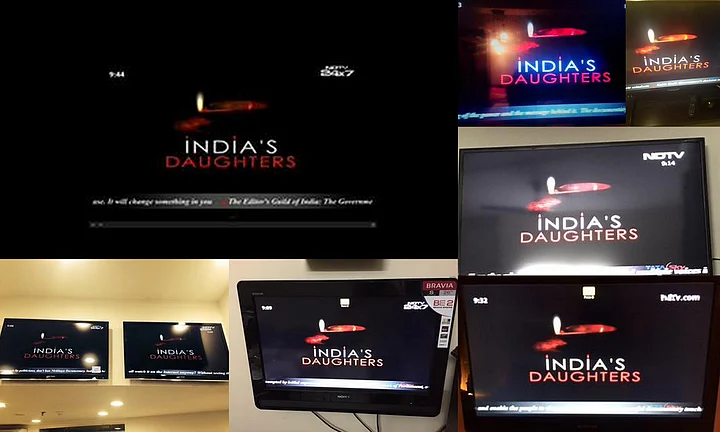Barred from airing controversial documentary ‘India’s Daughter’, NDTV protested by going ‘silent’ for an entire prime-time hour on Sunday evening.
NDTV was supposed to telecast the documentary on March 8, 2015 between 9 to 10 pm. Instead, viewers tuned in to see the picture of an earthen lamp with ‘India’s Daughters’ written below it.
In the face of stiff opposition from the court injunction armed government and members of the media fraternity like Times Now, this was NDTV’s unique way of protesting the ban.
The move was hailed as “great”, “symbolic” silent protest, with some commentators invoking examples of Indian Express’s blank page during the 1975 emergency.
However, NDTV’s protest in defence of free speech has come under criticism with examples highlighting a certain bit of hypocrisy.
Veteran editor Vinod Mehta, mourned by people across the political and media spectrum after he passed away yesterday, was “banned” from appearing on NDTV’s panel discussions. “I am banned from NDTV.” he told Scroll.in in what was perhaps his last interview. He added, “Previously, I used to appear at least twice a week on NDTV. But since the Radia tapes story, I have never been invited. And frankly, I don’t miss it.”
Mehta, as the editor of Outlook magazine, had published the Radia-tapes story. The repercussions rocked major media houses including NDTV.
A few years ago, Aditya Raj Kaul, was a frequent face on news channels holding panel discussions on issues concerning Kashmir. he represented Roots In Kashmir, a campaign group for Kashmiri Pandits. Kaul (now a journalist with Times Now) also claims to have been sidelined by NDTV.
“ I was muted for the views on Kashmir which didn’t match the separatist-tilt of the editor.”, he wrote in a Facebook post yesterday.
In 2009, NDTV’s Barkha Dutt came under severe criticism for suing a blogger who attacked her coverage of 26/11 Mumbai terror attacks.
As reported by Mid Day, the blogger, Chyetanya Kunte, in his post named Shoddy Journalism, had been critical of Barkha Dutt for “breaking every rule of ethical journalism in reporting the Mumbai mayhem.”
These reported examples are often brought up to question whether NDTV’s stand for freedom of speech smacks of hypocrisy.
(At The Quint, we question everything. Play an active role in shaping our journalism by becoming a member today.)
